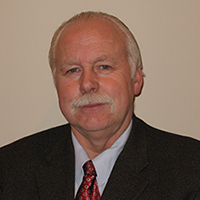
By / Kathleen Collins
SMACNA Legislative Consultant
Despite major closures in the Puget Sound area due to the COVID-19 virus, the Legislature concluded its work on March 12, the last scheduled day. The Legislature approved $175 million in new funding for the state’s public health systems and $25 million in unemployment relief for businesses impacted by the virus. The Legislature has not ruled out a special session if the state needs to do more to deal with the COVID-19 epidemic.
On a more positive note, the 2020 Legislative session produced a win on SMACNA’s priority bill—Fire, Life, Safety. For the most part bills that would have been detrimental did not pass and other bills were improved with amendments.
During the short 2020 session, the Legislature made adjustments to its two-year budgets. At the start of session, the state had a record amount of increased revenue, some of which was spent on homelessness and housing and on selected tax exemptions. The forecast is likely to be less positive in the future due to COVID-19 impacts.
The transportation budget adjustment was more challenging due to passage of Initiative 976 that reduced car tab and other transportation fees. This year the Legislature used unspent transportation money to shore up the hole left by I-976, but they will need a more sustained strategy in the future should the Supreme Court finds the Initiative is constitutional.
SHB 2701 – Fire Life Safety
Fire Life Safety was a joint legislative effort by SMACNA and our labor partners, Sheet Metal Workers Local 66. The new law puts existing state fire code requirements on smoke and fire damper inspections and repairs into statute. It requires inspections every four years for all buildings with these types of systems and every six years for hospitals. New systems have to be inspected within 12 months of installation. The inspections have to be conducted by personnel who have completed an ANSI approved program. SMACNA training through the JACT is ANSI approved.
Deficient dampers must be repaired within 120 days. A state or local authority having jurisdiction will issue a citation if repairs are not made in that time frame, or it can extend the timeframe if circumstances warrant that. Progressive monetary penalties are issued if repairs are not made. After 240 days, building owners must participate in a mandatory four-hour training course given by the International Certification Board (ICB) or equivalent provider of fire life safety programs.
SMACNA’s JACT training course on Fire Life Safety is ICB approved. Many SMACNA contractors have sent employees through the JACT training and are offering these types of inspections and repairs now. SMACNA thanks its labor partners, Sheet Metal Workers Local 66, for their partnership and assistance in passing this important bill that will make buildings in Washington safer for those who use them and for our fire professionals in the event of a fire.
State contracting out
State employee unions were finally successful in passing a bill that requires an analysis of costs and impacts to state workers before state work can be contracted out. HB 1521 is aimed at a broad swath of state work from landscaping and computer work to construction and covers all state agencies and universities. It puts in place a comparison process for work typically done by state employees after July, 2005. The comparison process is cumbersome and favors keeping the work in house.
Construction groups, including SMACNA, expressed opposition to the bill and some exceptions were made. Specifically, the following work will be handled using the usual bidding process and not the comparison process:
- All Department of Transportation contracts;
- All contracts with an estimated cost of less than $20,000;
- Mechanical (HVAC), plumbing, and electrical contracts to install new systems or life-cycle replacement with an estimated contract performance cost of $75,000 or more; and
- Public work contracts with an estimated cost of contract performance that exceeds $500,000.
- Please let SMACNA know if you encounter difficulties with this new law.
Other bills that passed
SB 5457 – Naming of subcontractors: In its initial form, this bill would have required naming all subcontractors for public works projects over $1 million. As passed, it leaves in place the current bid listing requirements for HVAC, plumbing, and electrical contractors, including the requirement to list within one hour of submittal. SB 5457 adds a new category of subcontractor—structural steel installation, and rebar installation—to the listing statute but with a longer 48-hour listing requirement.
SB 6170 – Plumbing licensure: This bill changes the current plumbing certification law to require contractors who do plumbing work be licensed. It retains the current plumbing certification system for employees doing plumbing work and creates a new residential service plumbing certificate. Other changes include additional penalties and enforcement, a phase in for stricter trainee ratios and clarification on requirements for plumbing work under the electrical licensing law.
SB 6239 – Apprenticeship utilization: This bill requires public works project bidder with a history of receiving monetary penalties for not achieving apprenticeship utilization goals, or who habitually utilizes the good faith effort exemption process, to submit an apprenticeship utilization plan with its bid documents.
SB 6473 – Asbestos-containing building materials: This bill prohibits asbestos-containing building materials in new construction or renovations except for residential construction. It requires owners of manufacturing facilities to inspect their facilities every five years if the facility has asbestos-containing materials.
If you have questions about any of these bills that have passed, please contact the SMACNA offices. ▪


